第17章 Chapter 3 Conspicuous Leisure(7)
This process of progressive exemption from the common run of industrial employment will commonly begin with the exemption of the wife, or the chief wife. After the community has advanced to settled habits of life, wife-capture from hostile tribes becomes impracticable as a customary source of supply. Where this cultural advance has been achieved, the chief wife is ordinarily of gentle blood, and the fact of her being so will hasten her exemption from vulgar employment. The manner in which the concept of gentle blood originates, as well as the place which it occupies in the development of marriage, cannot be discussed in this place. For the purpose in hand it will be sufficient to say that gentle blood is blood which has been ennobled by protracted contact with accumulated wealth or unbroken prerogative. The women with these antecedents is preferred in marriage, both for the sake of a resulting alliance with her powerful relatives and because a superior worth is felt to inhere in blood which has been associated with many goods and great power. She will still be her husband's chattel, as she was her father's chattel before her purchase, but she is at the same time of her father's gentle blood; and hence there is a moral incongruity in her occupying herself with the debasing employments of her fellow-servants.
However completely she may be subject to her master, and however inferior to the male members of the social stratum in which her birth has placed her, the principle that gentility is transmissible will act to place her above the common slave; and so soon as this principle has acquired a prescriptive authority it will act to invest her in some measure with that prerogative of leisure which is the chief mark of gentility. Furthered by this principle of transmissible gentility the wife's exemption gains in scope, if the wealth of her owner permits it, until it includes exemption from debasing menial service as well as from handicraft. As the industrial development goes on and property becomes massed in relatively fewer hands, the conventional standard of wealth of the upper class rises. The same tendency to exemption from handicraft, and in the course of time from menial domestic employments, will then assert itself as regards the other wives, if such there are, and also as regards other servants in immediate attendance upon the person of their master.
The exemption comes more tardily the remoter the relation in which the servant stands to the person of the master.
If the pecuniary situation of the master permits it, the development of a special class of personal or body servants is also furthered by the very grave importance which comes to attach to this personal service. The master's person, being the embodiment of worth and honour, is of the most serious consequence. Both for his reputable standing in the community and for his self-respect, it is a matter of moment that he should have at his call efficient specialised servants, whose attendance upon his person is not diverted from this their chief office by any by-occupation. These specialised servants are useful more for show than for service actually performed. In so far as they are not kept for exhibition simply, they afford gratification to their master chiefly in allowing scope to his propensity for dominance. It is true, the care of the continually increasing household apparatus may require added labour; but since the apparatus is commonly increased in order to serve as a means of good repute rather than as a means of comfort, this qualification is not of great weight. All these lines of utility are better served by a larger number of more highly specialised servants.
There results, therefore, a constantly increasing differentiation and multiplication of domestic and body servants, along with a concomitant progressive exemption of such servants from productive labour. By virtue of their serving as evidence of ability to pay, the office of such domestics regularly tends to include continually fewer duties, and their service tends in the end to become nominal only. This is especially true of those servants who are in most immediate and obvious attendance upon their master. So that the utility of these comes to consist, in great part, in their conspicuous exemption from productive labour and in the evidence which this exemption affords of their master's wealth and power.
After some considerable advance has been made in the practice of employing a special corps of servants for the performance of a conspicuous leisure in this manner, men begin to be preferred above women for services that bring them obtrusively into view. Men, especially lusty, personable fellows, such as footmen and other menials should be, are obviously more powerful and more expensive than women. They are better fitted for this work, as showing a larger waste of time and of human energy.
Hence it comes about that in the economy of the leisure class the busy housewife of the early patriarchal days, with her retinue of hard-working handmaidens, presently gives place to the lady and the lackey.